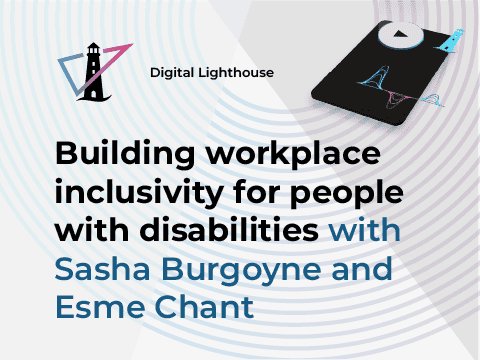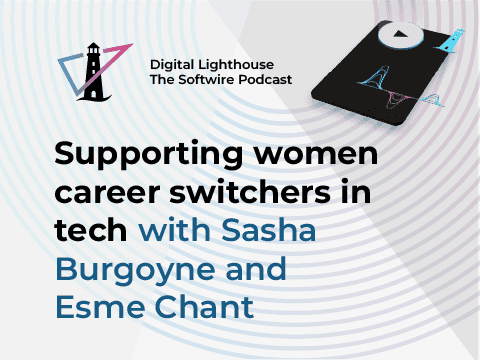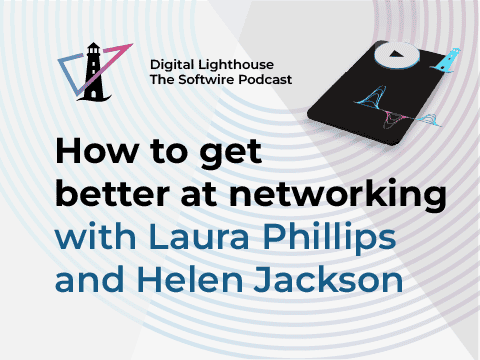
In the 2022 developer survey by StackOverflow, 10.3% of respondents identified as having an anxiety disorder. 9.7% said they had a mood or emotional disorder, such as depression or bipolar disorder. And 4.3% said they have autism or an autism spectrum disorder.
With coding being such a cerebral activity, it’s essential us software engineers look after our mental health if we’re to perform well. I see it as being similar to the way athletes need to take good care of their physical health, if they’re to succeed in their fields.
As a software engineer on the autism spectrum, as well as having generalised anxiety disorder (GAD), I wanted to share some of the ways I’ve developed to look after my mental health, in the hope it can help other neurodiverse software engineers get to a point where they’re also happy with the work they do.
Learning to deal with anxiety
One of the things that worsens my anxiety is when I’m working on important code for important projects. My anxious mind is constantly worrying about what could go wrong and the possible impacts. While these worries are usually unwarranted, and not the result of things other people say or do, they can still be all-consuming.
But with the benefit of experience, and having developed a variety of coping mechanisms, I now see anxiety as something I can deal with, rather than it being a foe I must run from. It means I now feel more comfortable, and happier with the work I produce.
Here are four techniques that have been valuable to me. Much of it is about creating the right environment for myself.
Creating an environment where you can thrive as a neurodiverse software engineer
1. Understand myself and what support helps me
The first step on my journey was to really understand how my mind works, and what triggers, in my case, the feelings of anxiety. By understanding these things, I was able to get clear in my own mind what support I need, and when I need it.
Therapy was a great help for me when it came to getting real clarity on this.
2. Find the right workplace
By properly understanding myself and the support I benefit from, I was able to proactively look for an employer where I was likely to get it.
Part of the picture for me was understanding the sorts of IT systems I’d be developing. This was partly about deciding whether I’d feel comfortable in the company, and partly about considering the impact my work was likely to have on my mental health so I could prepare myself for it more effectively.
Another factor for me is knowing I benefit from having a team around me, who I can ask for support. I wouldn’t personally want to work in a business where I’m the only developer, as I wouldn’t have this network close to me.
I did a lot of research into possible employers. I asked questions during my interviews, such as “what help do you have for people who are struggling with their mental health?” Some have said they fear asking this, in case it hinders their chances of being hired. For me, if that was the case, I probably wouldn’t want to work in that particular company anyway.
I looked at potential employers’ social media presences, to get a sense of company culture. And career-review sites such as Glassdoor and Handshake were useful when it came to spotting ingrained issues in organisations, such as expectations of working long hours, or ‘blame culture’.
3. Being open about the support I need
Part of the way that I’ve created an environment where I’m able to feel happy with the work I’m doing, is to make others aware of how they can support me.
The key things I’ll let colleagues know are:
- The feelings I’ll be dealing with, and when
- What support they can give me
- How much I’ll appreciate it if they do
I’ve heard others do the same. Some raise it privately with their project manager or tech lead, while others talk openly about it during team meetings. My advice is to do whatever you feel comfortable with.
As someone who suffers from GAD, approaching anyone about this in the first instance was daunting, but I’ve found people have always been extremely supportive. And by me and others doing this, I’ve noticed people adapting the language they use when speaking to us, as a result of what we’ve asked for. This is massively helpful when it comes to making us feel more confident in what we’re doing, and of course, it helps raise wider awareness of neurodiversity in the workplace.
4. Develop coping mechanisms
For me, coping mechanisms are the other major part of the story. They help minimise the effect my anxiety has on me.
By way of an example of what I find effective in reducing the anxiety I feel as part of my role as a developer, I’ve listed some of my coping mechanisms below. Of course, these will be different for everyone, and I found my therapist very helpful in enabling me to understand what would be effective for me.
Here are some of my mechanisms for coping with GAD as a software engineer:
- In my mind, I shrink the scale of the work I’m doing. For example, while the project I’m currently working on will indirectly impact very large numbers of people, the actual user base is relatively small. If I was to introduce an issue in my code, this would only directly affect a few dozen individuals
- Because I’m not working in an area such as safety-critical software, I remember that the consequences of any problem I might introduce are unlikely to be particularly severe. People are also generally accepting that things can go wrong in software and, of course, outside of safety-critical systems, no problem is unfixable
- I remind myself of the positive impact my work will have on the user base, which helps offset worries about what could go wrong
- I get validation. Hearing a user or customer stakeholder say ‘this is great, I’m really pleased you’re building this’ is a massive confidence-booster
- Lastly, I remind myself I’m good at what I do. Many of us are our own worst critics, and it’s important to take a step back from this and appreciate our talents
Where to get more support if you need it
While each of us is different, I hope the above advice is broad enough to be valuable for others working in software engineering (or any other technology role) who are struggling with their mental health.
Of course, this is based on my own experience, and doesn’t seek to replace the excellent professional support you can get from the NHS (see the NHS mental health services page), other care providers, or one of the mental health support charities, such as Mind.
One thing that comforts me is that we’re not alone in this situation, so I would encourage you to speak about your experience with trusted friends and colleagues.


